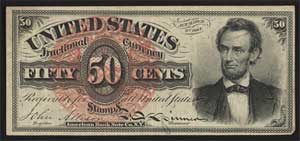 Banks are such a staple of modern life that it’s hard to imagine a time when there wasn’t one on every corner or checking accounts. And in fact, the history of banking does go back a long way — to thousands of years BCE.
Banks are such a staple of modern life that it’s hard to imagine a time when there wasn’t one on every corner or checking accounts. And in fact, the history of banking does go back a long way — to thousands of years BCE.
Finding a way to safeguard one’s resources has been a priority from the time when barter emerged as a way to do business. The history of banking parallels that of the history of money (or the goods that were traded before there were coins and other forms of money.) Some 9,000 years before the current calendar became a world standard, folks were trading in obsidian, the prime building material for tools. And rudimentary banking grew up along with trade. Ancient bankers loaned grain to clients who were active in trade. Among the first “coins” to be discovered were clay “tokens” found in the Near East that dated back to 8000 BCE.
When one of the early traders received pay for his goods, he went to the local temple to store his gains, trusting to the god to whom the temple was dedicated to protect his assets. The ruling class used the temples to protect the funds they amassed to finance festivals and community building projects.
Ancient bankers in Egypt, Babylonia ad Greece made loans, at very high interest, underwritten by the gold and silver deposited with them.
Any banking service has always come at a cost. In Babylonia circa 2000 BCE, depositors paid as much as a sixth of their deposit in charges. And regulation was also an early issue. The Code of Hammurabi, an important source of information about the Babylonian civilization, refers to banking regulations.
New ways of counting evolved as the number and the value of the goods trusted to the temples grew. The abacus was one of the first “adding machines” used by “accountants.” Its origin is lost in history. Counting tables with special apparatus to divide and number coins followed.
By about 2000 BCE, banks had taken on some of the character of today’s institutions. In Assyria and Babylonia, bankers innovated by accepting deposits and making loans. In China and India, archaeological remains show evidence of the same activities.
Bankers in northern Italy led developments in Europe, with Amsterdam soon stepping up as a leader in the business in the 16th century. London caught on and began offering banking services in the 1700s. Even earlier, in the 14th century, two families in Florence, Italy, the Bardis and Peruzzis, dominated the banking business, opening branch offices in many large European cities. The Medici family, which is noted for its involvement in the arts and sciences of the era, also had a finger in the banking pie. Giovanni Medici established a bank in 1397.
In the Medieval world, bankers often were Jews. Christians, based on strict reading of laws against usury that were set out in the Bible, left the industry to the Jews, who were happy to have the privilege, since many other occupations were denied them.
The first bank in the American colonies was the Bank of North America in Philadelphia, chartered in the mid-1700s. Many notable families have made their names and vast fortunes in banking, among them the Rockefellers, the Rothschilds and the Morgans.
Inevitable in any business that is steeped in the care and keeping of valuables, there have been incidences throughout history of misuse of funds, frauds, robberies and failures. Even with the modern technology that facilitates the care and keeping of assets, it still happens. The most recent in the United States occurred in 2000, when some of the country’s largest financial institutions came upon hard times.
But historically, the need for safe places to keep one’s assets has been proved. Banks are here to stay.